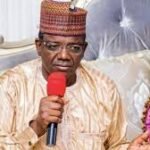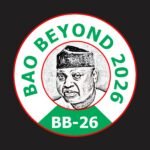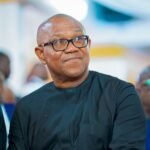Nigerian politics is a complex web of interests, power, and influence. The country, which is Africa’s most populous nation and has the largest economy, has a rich political history. However, it is also plagued by a host of challenges, including corruption, inequality, and ethnic and religious tensions.
Nigeria operates a federal system of government, with power divided between the central government and 36 states. The president, who is elected every four years, is the head of state and government. The National Assembly, which comprises the Senate and House of Representatives, is the country’s legislative arm.
The country’s political landscape was dominated by two major political parties: The emergence of the Labour Party has changed the dynamics with the APC,PDP and the Labour Party sharing 12 states each in the last elections despite the concerns of voter suppression and wanton destruction of property that was akin to the 1960s electoral process and it ended in a protracted war.
One of the key challenges facing Nigerian politics is corruption. Corruption is pervasive in all sectors of Nigerian society and has had a debilitating effect on the country’s development. The government has launched several anti-corruption initiatives, including the establishment of the Economic and Financial Crimes Commission (EFCC) and the Independent Corrupt Practices and Other Related Offences Commission (ICPC). However, progress has been slow, and corruption remains a significant challenge.
Another challenge facing Nigerian politics is inequality. Despite its vast natural resources and growing economy, Nigeria is one of the most unequal countries in the world. The gap between the rich and poor is widening, and poverty is still rampant. This has led to social unrest, particularly in the country’s northern region.
Ethnic and religious tensions are also a significant challenge in Nigerian politics. The country is home to over 250 ethnic groups, and religious differences have led to several conflicts, particularly in the northern and middle belt regions. The government has made efforts to address these tensions, including the establishment of a national peace commission, but progress has been slow.
In conclusion, Nigerian politics is a complex web of interests, power, and influence. The country faces several challenges, including corruption, inequality, and ethnic and religious tensions. The government must work to address these challenges and create an environment that fosters inclusive growth and development. It is crucial that all stakeholders, including politicians, civil society, and the electorate, work together to build a better Nigeria.







